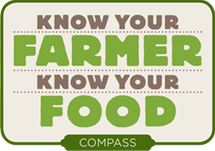|
|
USDA Projects in North Carolina MappedBy Maureen BernerPublished April 16, 2013
Viewers can see where U.S. Department of Agriculture projects are located throughout the nation. The map is available for the entire US, but one can zoom down to the region, state, local area, or the zip code level. Markers are placed on the map corresponding to the community which received USDA funding for a variety of projects or programs. (Multiple projects within a zip code are represented by just one marker). When you look at the North Carolina map, one sees a cluster of projects in the Asheville and Raleigh areas, with a significant absence of programs in the East and a smattering of programs elsewhere throughout the state. One of the more interesting aspects of the map is the ability is isolate communities that have received particular kinds of program funding. Initially all programs are shown, but the searcher can ‘de-select’ programs one by one, isolating the programs you wish to explore. For example, one can identify all locations in the state (as well as nearby states) that receive marketing and promotion funding. Selecting a ‘dot’ provides additional data in a pop-up chart. In north central North Carolina, one ‘dot’ provides specifics on the USDA grant Warren County received in 2009 for approximately $12,500 for its Farmer’s Market Promotion program, a USDA marketing grant recipient, and another ‘dot’ shows the $10,000 grant for the Stecoah Kitchen Entrepreneurship and Agri-tourism Project in Robbinsville funded by the Sustainable Agriculture and Research Education Program. A link in the pop-up chart then guides you to the USDA program web site with details about how the USDA program works in general or to the recipient organization which received the grant. Pop-up information varies by site. Another aspect of the map is the ability to layer on additional information, such as other federal funding from related agencies (DOT, EPA and other others) as well as information that could be useful for economic and community development specialists. This includes ‘Food Hubs,’ farmers markets or meat processors. The obvious benefit of the compass is to see either what is going on across all programs in a particular area of the state or to see state-wide what awards have been made in a particular program area. Those communities interested in developing similar proposals could then contact prior recipients for information, or areas that have not seen much funding activity could make more concentrated efforts to draw federal attention. Maureen Berner is School of Government faculty member. |
Published April 16, 2013 By Maureen Berner
 The USDA has made a new compass map available — Know Your Farmer, Know Your Food Compass Map http://www.usda.gov/maps/maps/kyfcompassmap.htm.
The USDA has made a new compass map available — Know Your Farmer, Know Your Food Compass Map http://www.usda.gov/maps/maps/kyfcompassmap.htm.
Viewers can see where U.S. Department of Agriculture projects are located throughout the nation. The map is available for the entire US, but one can zoom down to the region, state, local area, or the zip code level. Markers are placed on the map corresponding to the community which received USDA funding for a variety of projects or programs. (Multiple projects within a zip code are represented by just one marker). When you look at the North Carolina map, one sees a cluster of projects in the Asheville and Raleigh areas, with a significant absence of programs in the East and a smattering of programs elsewhere throughout the state.
One of the more interesting aspects of the map is the ability is isolate communities that have received particular kinds of program funding. Initially all programs are shown, but the searcher can ‘de-select’ programs one by one, isolating the programs you wish to explore. For example, one can identify all locations in the state (as well as nearby states) that receive marketing and promotion funding. Selecting a ‘dot’ provides additional data in a pop-up chart. In north central North Carolina, one ‘dot’ provides specifics on the USDA grant Warren County received in 2009 for approximately $12,500 for its Farmer’s Market Promotion program, a USDA marketing grant recipient, and another ‘dot’ shows the $10,000 grant for the Stecoah Kitchen Entrepreneurship and Agri-tourism Project in Robbinsville funded by the Sustainable Agriculture and Research Education Program. A link in the pop-up chart then guides you to the USDA program web site with details about how the USDA program works in general or to the recipient organization which received the grant. Pop-up information varies by site.
Another aspect of the map is the ability to layer on additional information, such as other federal funding from related agencies (DOT, EPA and other others) as well as information that could be useful for economic and community development specialists. This includes ‘Food Hubs,’ farmers markets or meat processors. The obvious benefit of the compass is to see either what is going on across all programs in a particular area of the state or to see state-wide what awards have been made in a particular program area. Those communities interested in developing similar proposals could then contact prior recipients for information, or areas that have not seen much funding activity could make more concentrated efforts to draw federal attention.
Maureen Berner is School of Government faculty member.
Author(s)
Tagged Under
This blog post is published and posted online by the School of Government to address issues of interest to government officials. This blog post is for educational and informational Copyright ©️ 2009 to present School of Government at the University of North Carolina. All rights reserved. use and may be used for those purposes without permission by providing acknowledgment of its source. Use of this blog post for commercial purposes is prohibited. To browse a complete catalog of School of Government publications, please visit the School’s website at www.sog.unc.edu or contact the Bookstore, School of Government, CB# 3330 Knapp-Sanders Building, UNC Chapel Hill, Chapel Hill, NC 27599-3330; e-mail sales@sog.unc.edu; telephone 919.966.4119; or fax 919.962.2707.

